Search Results
Showing results 281 to 300 of 300
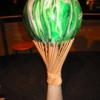
Trophy Triathlon
Source Institutions
In this activity, learners are challenged to design and construct a trophy for prize-winning sports equipment.
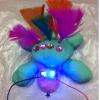
Dough Creatures
Source Institutions
In this technology activity, learners light up the room with electrifying play dough creations. Learners use conductive and insulating homemade play dough to build simple circuits.
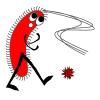
Comparing Sizes of Microorganisms
Source Institutions
In this activity related to microbes, learners create scale models of microorganisms and compare relative sizes of common bacteria, viruses, fungi and protozoa using metric measures: meters, centimete
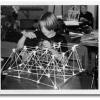
Skewers and Garden Poles
Source Institutions
In this activity, learners build scaled-down structures and cantilevers in a series of "building out" challenges with bamboo skewers and tape.
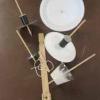
Tops
Source Institutions
In this activity, learners discover that some things only stand up while they are spinning.
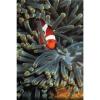
Underwater Hide and Seek
Source Institutions
In this activity, learners experience firsthand how marine animals' adaptive coloration camouflages them from prey.
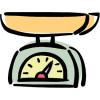
Measurement: Sand Babies
Source Institutions
In this math lesson, learners explore and investigate measurement using standard and non-standard units.
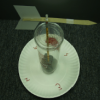
Design and Build a Wind Vane
Source Institutions
In this activity, learners design and build a simple wind vane —one of the oldest kinds of weather tools— and use it to show wind direction.
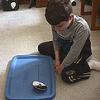
Benham's Disk
Source Institutions
In this activity, learners make a Benham Top to explore visual illusions and optics.
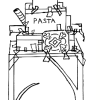
Building with Wonderful Junk
Source Institutions
In this activity (page 4), learners work in groups to plan and build large structures using recyclable materials they have brought from home.

Space Stations: Sponge Spool Spine
Source Institutions
In this activity, learners simulate what happens to a human spine in space by making Sponge Spool Spines (alternating sponge pieces and spools threaded on a pipe cleaner).

Size, Scale and Models
Source Institutions
In this activity, learners take measurements and create charts to learn about the size of dinosaurs and their relative scale to humans.
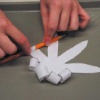
Moving On Up: Capillary Action II
Source Institutions
Learners explore capillary action in plants (such as plants ability to move water from roots to leaves) in an investigation called Paper Blooms.
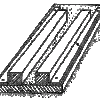
Clay Beams and Columns
Source Institutions
In this activity, learners make or use pre-made clay beams to scale and proportion. Specifically, they discover that when you scale up proportionally (i.e.
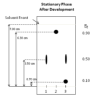
Chromatography Can Separate!
Source Institutions
In this chemistry activity, learners use thin layer chromatography to determine the molecular composition of different markers.

Environmental Chemistry
Source Institutions
In this activity with several mini experiments, learners explore the chemistry that helps scientists learn about the environment and how they can help save it.
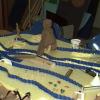
Make Your Own Mini Mini Golf Course
Source Institutions
Build your own Mini Mini Golf Course and learn about hands-on building and design, basic circuitry, motion modules and more!
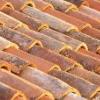
Waterproof that Roof!
Source Institutions
In this activity, learners explore how engineers have improved roofing designs and materials in order to protect the contents of buildings.
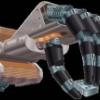
Build Your Own Robot Arm
Source Institutions
In this lesson, learners develop a robot arm using common materials. Learners explore design, construction, and teamwork, as well as materials selection and use.
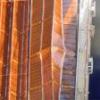
Folding Matters
Source Institutions
In this activity, learners explore how the process of folding has impacts on engineering and is evident in nature.
